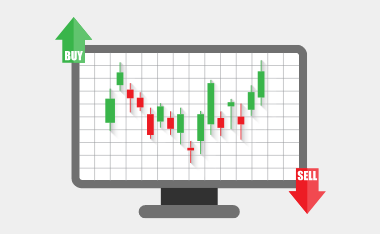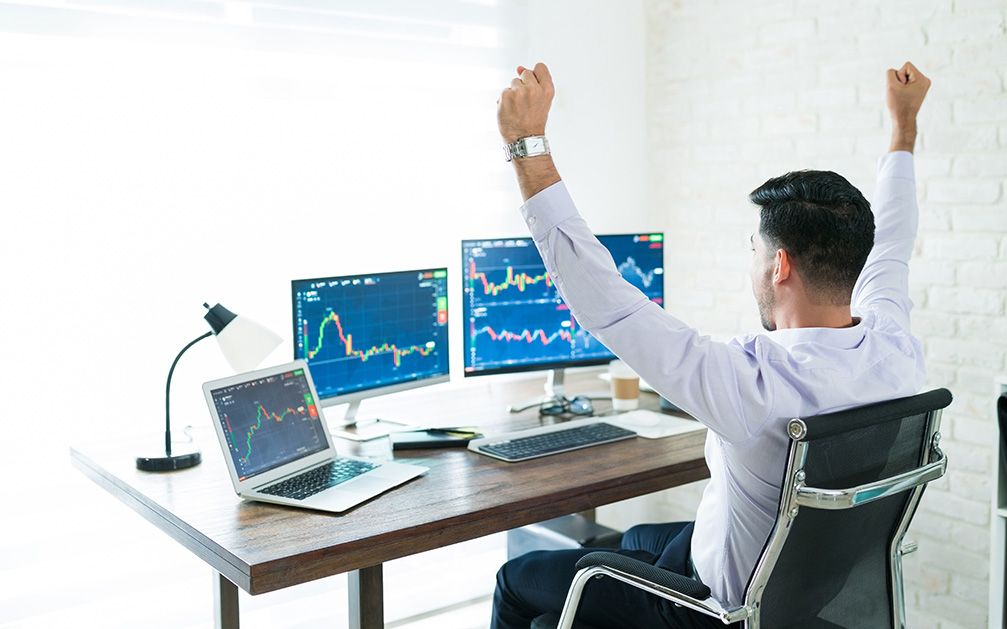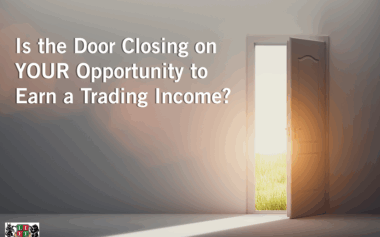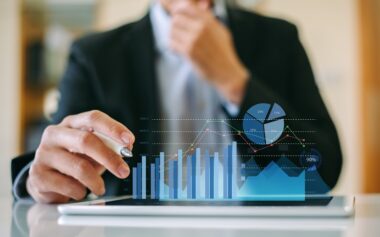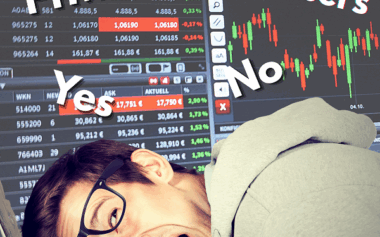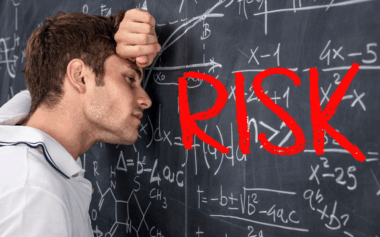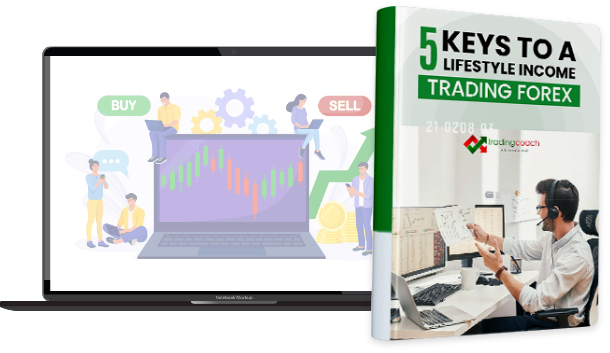Are You Ready to Start Forex Trading?

Are You Ready to Start Trading Forex, or are there steps you need to take to prepare yourself for success as a Forex Day Trader?
A Growing Interest for Australians

The Australian financial landscape has witnessed a growing interest in Forex Day Trading in recent years.
Multiple factors contribute to this rising trend, including the allure of potential profits, increased online awareness and accessibility to global markets, and the desire for individuals to take more direct control over their financial destinies.
Moreover, the flexibility offered by the Forex market – which operates 24 hours, five days a week – allows Australians to trade at times that suit their schedules, making it an attractive alternative or supplement to traditional forms of investment.
However enticing as Forex Day Trading may seem, it is not without its complexities and challenges.
The market’s high volatility and the significant leverage offered by brokers means that potential profits can be substantial, but so can the losses.
Therefore, diving headfirst into Forex without a solid foundation of knowledge can be akin to navigating treacherous waters without a compass. Do you have a map or compass as you get started on your journey to being ready to start forex trading?
For Australians considering this venture, preparation is paramount.
This entails understanding the intricacies of the market, developing a robust trading strategy, and continuously educating oneself about global economic factors that influence currency movements.
As with any form of investment, a well-informed approach to Forex Day Trading increases the likelihood of success and minimises unnecessary risks.
The Power of Education: Building a Strong Forex Foundation

In the vast and dynamic world of Forex trading, knowledge isn’t just a luxury; it’s a necessity.
The foreign exchange market, recognised as the largest financial market globally, sees trillions of dollars exchanging hands daily.
For individual traders eager to dip their toes into this expansive market, it’s crucial to be equipped with a comprehensive understanding.
This understanding is grounded in two foundational pillars: technical analysis, which deciphers price charts and employs statistical tools to project future price trajectories, and fundamental analysis, where economic indicators and worldwide events are analysed to provide a broader view of potential market shifts.
Moreover, beyond these primary analytical tools, there’s a broader tapestry of influences that every adept trader needs to be conscious of.
The world’s geopolitical landscape, ever-evolving economic trends, and the critical decisions made by central banks collectively shape the ebb and flow of the Forex market.
By keeping abreast of these macro factors, an adept trader is better positioned to predict and respond to market fluctuations, ensuring they aren’t caught off-guard by sudden shifts.
For retail Forex traders, who often navigate this vast ocean amidst much larger institutional players, a unique strategy can be employed: leveraging the trends set by these institutional traders.
Through astute technical analysis, these retail traders can detect and follow trends, many of which are set in motion by the significant trades of these larger entities.
This tactic, often termed “riding the coattails of the big fish,” enables retail traders to make informed decisions based on the larger market movements.
Though daunting, the journey to Forex proficiency is made simpler thanks to the myriad educational resources available in today’s digital age fore those getting ready to start forex trading.
Aspiring traders have access to a wealth of online courses, in-depth webinars, and insightful books.
Furthermore, there are thriving online communities and forums where individuals can share experiences, challenges, and strategies.
Our LIFT Investor Trader program has been built following a holistic approach, blending a comprehensive but easy-to-follow curriculum with hands-on, one-on-one coaching and mentorship, ensuring that traders aren’t just learning theory but are also applying and refining their skills in the live market.
The Double-Edged Sword: Understanding the Risks of Forex Day Trading
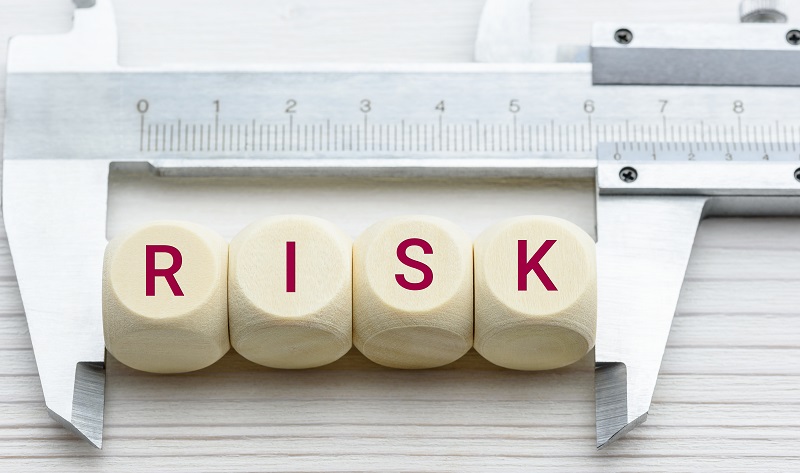
Forex day trading, while offering promising avenues for profit, is akin to a double-edged sword, primarily due to the inherent volatility and the element of leverage.
The foreign exchange market’s volatility stems from various factors, including global geopolitical events, economic announcements, and even unforeseen incidents like natural disasters.
This unpredictable nature can lead to significant price swings within short time frames, offering traders potential high returns and exposing them to substantial losses.
Furthermore, leverage, a tool provided by brokers allowing traders to control a much larger position with a relatively small amount of capital, magnifies both the profit potential and the associated risks.
While it can amplify returns, it can equally intensify losses, sometimes even exceeding the initial investment.
Navigating the treacherous waters of Forex day trading demands more than technical prowess and market knowledge; it requires significant emotional intelligence.
Emotional intelligence equips traders with the ability to recognise and manage their emotions, be it the euphoria of a successful trade or the disappointment of a loss.
Succumbing to emotions can lead to impulsive decisions, such as chasing losses or becoming overconfident after a win, both of which can jeopardise a trader’s capital and strategy.
Managing stress, closely tied to emotional intelligence, is pivotal for anyone engaged in Forex day trading.
The market’s relentless pace and constant need to make informed decisions can take a toll on one’s mental well-being.
Effective stress management techniques are essential, such as taking regular breaks, practising mindfulness, or even engaging in physical exercise.
By keeping track of and focusing one’s emotions and keeping stress at bay, a trader can maintain clarity, make rational decisions, and better navigate the market’s unpredictable waves.
Know Thyself: Understanding Your Personal Risk Profile
At the heart of any investment strategy, especially in the intricate world of Forex trading, lies an often-overlooked component: the investor’s personal risk profile.
Risk tolerance, a fundamental aspect of this profile, is the degree to which an individual is comfortable with the possibility of losing money in pursuit of higher returns.
It’s a subjective measure and can vary significantly from one trader to another.
Why does it matter?
Because understanding and acknowledging one’s risk tolerance is crucial to making investment decisions that align with personal financial goals and emotional well-being.
When traders operate outside their comfort zones, they are more prone to making rash decisions driven by fear or greed.
Diving deeper, risk profiles can typically be categorised into three main types.
Firstly, there’s the risk-averse profile. Individuals falling into this category are inherently cautious and prioritise capital preservation above all.
They tend to shy away from investments with high volatility, even if they promise potentially higher returns. Their primary goal is safeguarding their initial investment, even if it means settling for lower profitability.
In contrast, risk-aggressive traders are the polar opposite.
They are willing to embrace significant volatility and uncertainty in hopes of securing higher returns.
While they acknowledge the potential for more considerable losses, their appetite for risk is much larger, believing that the rewards justify the means. One could say that they are too ready to start forex trading and may need to consider their risk management structures as they take their next step.
For these traders, the thrill of chasing higher profits and their confidence in their strategies often outweigh the fears of potential downturns.
Positioned comfortably in the middle are the risk-balanced traders.
They seek a middle ground, aspiring for appreciable returns while still maintaining a level of caution.
Their portfolios often exhibit a mix of safe and risky assets, aiming to strike a balance between capital growth and preservation.
They are neither overly cautious nor exceedingly daring, often basing their decisions on a combination of market analysis and personal comfort.
Understanding one’s risk profile isn’t just an exercise in self-reflection; it’s instrumental in crafting an effective trading strategy.
A risk-averse trader might focus on more stable currency pairs, use tighter stop-loss orders, or trade less frequently.
Meanwhile, a risk-aggressive individual might venture into more volatile markets, use higher leverage, or execute trades based on shorter-term market movements.
By aligning strategies with their inherent risk profiles, traders can ensure that they remain consistent in their approaches, make decisions that resonate with their financial and emotional capacities, and, ultimately, forge a path that mirrors both their ambitions and limitations.
Funding Your Dream: Having the Financial Capacity to Trade
The allure of Forex trading, with its potential for significant profits, can be intoxicating.
However, it’s crucial to remember that the journey should be grounded in financial prudence.
One of the cardinal rules of trading is never to invest money that you can’t afford to lose.
Above that, smart traders and investors take the actions that they know are More Likely to MAKE them Money and Least Likely to Lose their Money.
After all, isn’t Making Money Consistently the best strategy to minimise risk?
Engaging in trading activities with funds designated for essential expenses, like rent, education, or healthcare, exposes one to excessive emotional and financial distress.
Such circumstances often lead to rash decisions, driven by the desperate need to recover losses, ultimately spiralling into further financial jeopardy.
Building a robust forex trading income necessitates a foundation of financial stability.
It’s not just about amassing wealth but cultivating a sustainable structure that can weather the market’s ups and downs.
Beginning with a solid financial footing means you are not trading out of desperation or sheer need.
Instead, you’re manoeuvring from a position of strength, where the objective is growth rather than mere survival.
This approach provides the mental clarity required to make informed decisions without the pressure of immediate financial obligations clouding judgment.
Before diving deep into the live market, the importance of mastering the foundations of your trading business must be stressed more before you get ready to start forex trading.
This involves understanding your chosen trading method thoroughly.
Starting with a demo account is advisable, as it provides a risk-free environment to practice and refine strategies.
Building Your Investment Strategically
Once a trader gains confidence and demonstrates consistency in the demo setting, transitioning to a live account with a small investment is the next logical step.
Over time, as a trader achieves consistent returns and further familiarises themself with market dynamics, gradually increasing the investment amount per trade becomes feasible.
Finally, maintaining a financial buffer is paramount beyond the capital allocated for trading.
This emergency fund serves multiple purposes.
Not only does it provide a safety net in case trading ventures go awry, but it also ensures that unexpected personal financial emergencies don’t disrupt or derail one’s trading journey.
By having this cushion, traders can operate with an added layer of security, knowing that they have resources to fall back on, allowing them to make decisions without the shadow of potential financial ruin looming overhead.
Building a Sustainable Forex Trading Enterprise: More than Just Trading
Embarking on a successful forex trading journey is not solely about buying and selling currency pairs; it’s about constructing a comprehensive enterprise that’s sustainable in the long run.
Choosing a Broker
A pivotal starting point in this endeavour is selecting the right trading platform and broker.
Your chosen broker acts as the gateway to the markets, and the platform is your primary tool for executing trades.
Opting for a broker with a sterling reputation, transparent fee structures, and reliable customer support is essential.
The trading platform, on the other hand, should be user-friendly, offer a range of analytical tools, and ensure seamless trade execution. A well-researched decision here lays the groundwork for a smoother trading experience.
Your Trading Strategy and Plan
At the heart of a sustainable trading enterprise lies a systematic trading plan.
This plan should encompass a proven and profitable trading method with crystal-clear guidelines for every potential market scenario.
Strategic entry and exit points, along with predetermined stop-loss and take-profit rules, are paramount for those investors who are getting ready to start forex trading.
These guidelines provide traders with a roadmap to navigate the ever-fluctuating market conditions and insulate them from impulsive decisions driven by emotions.
A well-structured plan ensures consistency and offers a framework for traders to evaluate and refine their strategies over time.
The Importance of Ongoing Education
In the ever-evolving landscape of forex trading, resting on one’s laurels is not an option.
Continuous learning and adaptability are the lifeblood of long-term success.
Market dynamics, global events, technological advancements, and trading methodologies are constantly in flux.
To stay ahead of the curve, traders must remain committed to expanding their knowledge, attending workshops, engaging with trading communities, and staying updated with global news.
Adaptability, the sibling of continuous learning, requires traders to be agile, adjusting their strategies in line with changing market conditions and learning from their experiences.
Keep Detailed Business Records
Lastly, the significance of diligent record-keeping cannot be overstated. Maintaining a detailed log of all trades, including the rationale behind each decision, outcome, and reflection, is invaluable.
This record acts as a mirror, reflecting both triumphs and missteps.
By regularly reviewing these logs, traders can identify patterns, rectify mistakes, and continually refine their approach.
It’s a testament to the old adage: Those who fail to learn from history are doomed to repeat it.
In the context of forex trading, consistent self-reflection and analysis are the cornerstones of ongoing improvement and success.
How to Find Out More and Continue Your Forex Journey
The world of Forex trading, vast and ever-evolving, beckons newcomers with its promises of lucrative opportunities.
However, to traverse its complex landscapes successfully, seeking out information, resources, and support judiciously is essential.
Joining Forex Trading Programs, like LIFT Investor Trader, that come with thriving communities and groups can be a boon when you are getting ready to start forex trading.
These platforms often offer a plethora of resources, including strategy discussions, market analyses, and peer support.
They provide a space for novice and seasoned traders to share experiences, seek advice, and collaboratively navigate the markets’ tumultuous waves.
In an industry dictated by global events, staying updated is not just beneficial; it’s imperative.
Numerous websites and blogs cater explicitly to Forex enthusiasts, providing regular market updates, analytical articles, and forecasts.
Subscribing to these platforms ensures traders have their fingers on the pulse of the market, armed with timely insights that can guide their trading decisions.
Furthermore, as the digital realm is teeming with information, it’s crucial to identify and follow reputable sources to ensure the accuracy and reliability of the data consumed.
Be Cautious of Who You Follow as You Get Ready to Start Forex Trading
Be aware of the motivations of those people whom you take advice from. Ensure they provide information for YOUR benefit, not just to lure you into a scam or scheme where they are likely to take your money and give you little in return.
Don’t be taken in by over-the-top displays of supposed wealth.
Most successful traders are like most successful traditional business owners… they live comfortable lives where they focus on value, not buying the most expensive sports car…
Would they have achieved generational wealth by buying vanity possessions?
Expanding one’s knowledge goes beyond just online resources.
Attending seminars, webinars, and conventions focused on Forex trading can significantly enhance a trader’s expertise.
Mentorship, in many ways, is the fast track to Forex mastery.
Learning from an experienced trader who has weathered the market’s storms and celebrated its highs provides novices with a wealth of practical knowledge.
Mentors offer guidance, help in strategy refinement, and, most importantly, share their own experiences, ensuring their protégés avoid common pitfalls.
Recognising the potency of a holistic approach, the LIFT Investor Trader program seamlessly weaves all these elements together. It provides traders with step-by-step strategies, guided education, and one-on-one mentoring.
LIFT’s integrated approach ensures that members are well-educated and continually supported, fostering an environment where they are set up for sustained success.
More Information
For more information about LIFT Investor Trader for New Traders, visit our New Trader Page HERE
To look at these concepts in action, please visit our sister site, Latest Forex Rates
What to Do Next
For information and to see how our LIFT Investor Trader Program could potentially help you build a full time income from trading in your spare time, BOOK YOUR FREE STRATEGY SESSION HERE to speak with our Lead Trading Coach.
Disclaimer
The information, strategies, techniques and approaches discussed in this article are for general information purposes only. The Trading Coach International does not necessarily use, promote nor recommend any strategies discussed in this article. The information in this article may not be suitable for your personal financial circumstances and you should seek independent qualified financial advice before implementing any financial strategy. The Trading Coach International is not a financial advisor and does not have AFS registration.

